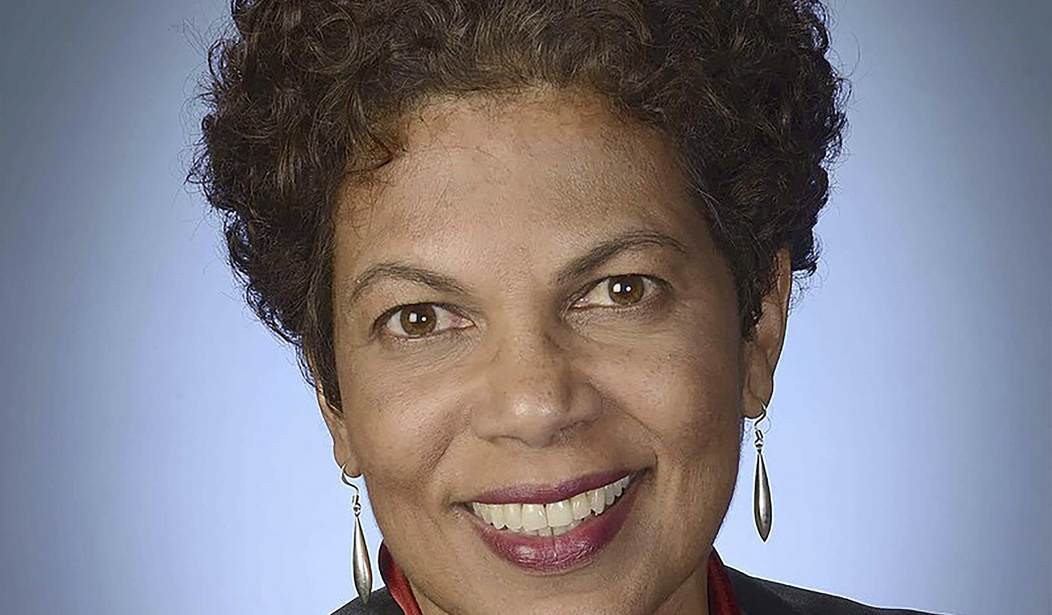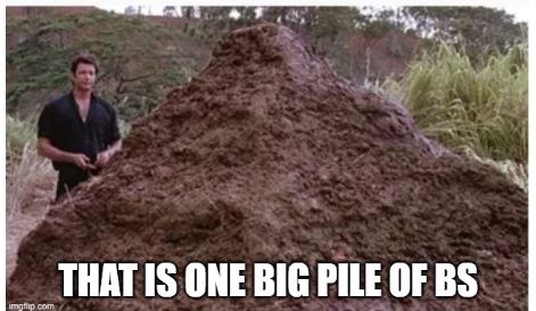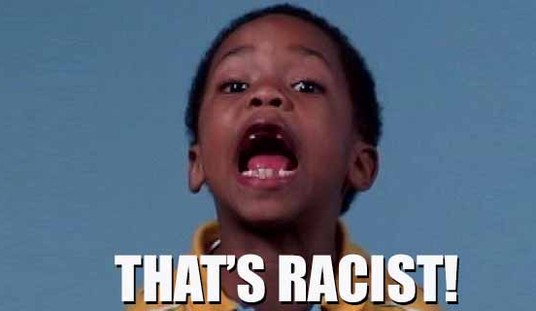As you know, Trump is facing four indictments—two in state court and two in federal court. One of them is being heard in Washington, D.C., where Trump is only slightly more popular than AIDS. Maybe. The charge boils down to double plus ungood expression challenging an election in the third degree. Sorry, if we don’t pretend to take it seriously, but it really doesn’t deserve to be treated with any respect. Trump’s allegedly criminal conduct was constitutionally protected.
In any case, one point of contention is the belief that Judge Chutkan needs to recuse herself (step out of the case) to avoid an appearance of bias.
Previously, Trump’s lawyers did a pretty solid job of making the case. The essential 'Techno Fog' covered that motion in a prior thread:
Numerous statements by Chutkan suggesting Trump should be charged for January 6.
— Techno Fog (@Techno_Fog) September 11, 2023
Expressing disappointment that Trump was not yet charged -
Criticizing a J6 Defendant's "blind loyalty to one person who, by the way, remains free to this day." pic.twitter.com/O9WVD3WdBP
Most notably, Chutkan admitted she pre-judged Trump's guilty: "I have my opinions"
— Techno Fog (@Techno_Fog) September 11, 2023
This included conclusions that Trump "encouraged" and "rallied" unlawful action on J6.
Her conduct in Trump's case - the unconstitutional trial setting - just proves that point. pic.twitter.com/RoxXhn1hSr
To pull out some of the quotes that Techno Fog brings up, here’s the first one, quoting Judge Chutkan’s statements in a case:
This was nothing less than an attempt to violently overthrow the government, the legally, lawfully, peacefully elected government by individuals who were mad that their guy lost. I see the videotapes. I see the footage of the flags and the signs that people were carrying and the hats they were wearing and the garb. And the people who mobbed that Capitol were there in fealty, in loyalty, to one man -- not to the Constitution, of which most of the people who come before me seem woefully ignorant; not to the ideals of this country; and not to the principles of democracy. It’s a blind loyalty to one person who, by the way, remains free to this day.
That quote comes from a sentencing hearing involving one of the January 6 defendants.
We think that is the most damning quote and we think Trump’s lawyers agree. One thing lawyers are taught is that you usually start with your best stuff—best evidence, best argument, whatever it is. At least 75% of the time, whatever a lawyer puts first is in his or her opinion the strongest, if at all possible.
The next quote from Judge Chutkan comes from a different sentencing hearing:
He went to the Capitol because, despite election results which were clear-cut, despite the fact that multiple court challenges all over the country had rejected every single one of the challenges to the election, Mr. Palmer didn’t like the result. He didn’t like the result, and he didn’t want the transition of power to take place because his guy lost. And it is true, Mr. Palmer -- you have made a very good point, one that has been made before -- that the people who exhorted you and encouraged you and rallied you to go and take action and to fight have not been charged. That is not this court’s position. I don’t charge anybody. I don’t negotiate plea offers. I don’t make charging decisions. I sentence people who have pleaded guilty or have been convicted. The issue of who has or has not been charged is not before me. I don’t have any influence on that. I have my opinions, but they are not relevant.
Recommended
That is weaker, as expected, but there you go. The other pictures Techno Fog highlights deal with the law and can be summed up pretty quickly. The judge must disqualify him or herself in any proceeding in which his or her impartiality can reasonably be questioned. Now there is a lot to unpack in that. The word 'reasonably' is doing a lot of work, here, and it means more than what a lay person might ordinarily guess. Obviously it means a person who is reasonable, not a crazed ideologue, not a TikToker paid by the DNC to only find fault on one side of the isle, but a person who is themselves fair. But it also means a person informed of all relevant facts. That means that this person has actually read the transcripts of each trial that they were quoting from.
But the term 'questioned' is also important. You don’t actually have to prove bias to get a recusal. You just have to prove a reasonable person would question their impartiality. At the same time, judges are not supposed to grant recusal lightly, because otherwise people could abuse it to get rid of a judge they didn’t like simply because they were ruling against them.
And dare we say that in this case the judge need to be extra careful to make sure Trump is getting a fair trial?
So, this seems like a solid case for recusal, right? Well, as you might’ve guessed by the title, the judge decided otherwise.
DC Judge Tanya Chutkan refuses to recuse -
— Techno Fog (@Techno_Fog) September 28, 2023
Admits she has opinions about those uncharged with January 6 offenses.
Denies that includes Trump.
Defies belief, really. pic.twitter.com/l1KSWcxEol
But let’s dive a little deeper into that. We don’t think 'Mueller, she wrote' has very good analysis (see our prior coverage, here) but she shares an accurate copy of the ruling, here:
Here’s the full filing https://t.co/o3S6piZrPL
— Mueller, She Wrote (@MuellerSheWrote) September 27, 2023
The big move by Judge Chutkan is when she says this:
The Supreme Court has held that a judge’s statements made in a judicial setting and reflecting 'opinions formed by the judge on the basis of facts introduced or events occurring in the course of the current proceedings, or of prior proceedings, do not constitute a basis for a bias or partiality motion unless they display a deep-seated favoritism or antagonism that would make fair judgment impossible.' Liteky v. United States, 510 U.S. 540, 555 (1994). That is because such statements often reflect information that the judge 'properly and necessarily acquired in the course of the proceedings' and that was 'necessary to the completion of the judge’s task.' Id. at 551. After all, if a court 'did not form judgments' about the issues in a case, then it 'could never render decisions.' Id. (quotation omitted). Consequently, statements originating from such 'intrajudicial' rather than 'extrajudicial' sources require recusal only 'in the rarest circumstances.' Id. at 555, 557.
Now, it is true that as a trial proceeds, a judge is allowed to form an opinion about the case. For instance, during the Kyle Rittenhouse case it became clear that as they went on, Judge Schroeder increasingly turned against the prosecution. We are not saying any particular ruling was unfair, but you definitely got the sense after a while that the judge had figured out that this was a case that shouldn’t have even been brought. We even caught the judge’s body language showing he had no fear of physical harm from Rittenhouse, because he figured out he was harmless (unless threatened). So, in that sense, we agree with many of Schroeder’s critics that he seemed to conclude as the case went on that Rittenhouse deserved to be acquitted. But there’s nothing wrong with that, as long as the only reason why he was drawing that conclusion was the evidence introduced at trial. You can’t expect a judge to sit through an entire case and have no opinion on it.
And here’s another scenario where that is appropriate: When a judge deals with the same party in more than one case, if the judge had a negative opinion about that party in the prior case, that is not usually cause for recusal. So, let’s say 'John Smith' was a plaintiff in one case and he was caught doing something uniquely awful like presenting clearly forged evidence in that case. Let us say the judge rightfully chewed him out and sanctioned him for that misconduct. Then later on, John Smith is sued by someone else and draws the same judge. That prior 'chewing out' is not grounds for forcing that judge to recuse him or herself. Indeed, that judge can use that prior knowledge as a basis for taking measures to ensure that the prior misconduct is not repeated.
But this is a very different situation. Here, the prior hearings didn’t involve Trump in any direct way. People could badmouth Trump in those sentencing hearings—and they had an incentive to do so—and Trump had no opportunity to rebut anything they were saying about him.
And you saw that Judge Chutkan was relying primarily on Liteky v. United States, 510 U.S. 540 (1994). Well, here is what that case actually said:
The judge who presides at a trial may, upon completion of the evidence, be exceedingly ill disposed towards the defendant, who has been shown to be a thoroughly reprehensible person. But the judge is not thereby recusable for bias or prejudice, since his knowledge and the opinion it produced were properly and necessarily acquired in the course of the proceedings, and are indeed sometimes (as in a bench trial) necessary to completion of the judge's task. As Judge Jerome Frank pithily put it: 'Impartiality is not gullibility. Disinterestedness does not mean child-like innocence. If the judge did not form judgments of the actors in those court-house dramas called trials, he could never render decisions.' … Also not subject to deprecatory characterization as 'bias' or 'prejudice' are opinions held by judges as a result of what they learned in earlier proceedings. It has long been regarded as normal and proper for a judge to sit in the same case upon its remand, and to sit in successive trials involving the same defendant.
Just to translate a bit from legalese into English, when they talk about 'sit[ting] in the same case upon its remand' what they mean is that sometimes when an appeals court makes a decision, they remand the case to the lower court. That is, they send it back to the lower courts, to redo things with their ruling in mind. For instance, imagine that in a civil case that the lower court made an incorrect ruling on evidence, allowing evidence to be introduced at trial that shouldn’t have been. When a higher court rules that this evidence should have been excluded, they will generally remand the case back to the lower court. Then there might be a new trial where this time the lower court makes sure that the evidence doesn’t come in. And what the Supreme Court is saying is that it is perfectly ordinary for that new trial to be before the same judge.
Thus, with that in mind, you realize that all this talk by the Supreme Court about prior proceedings and subsequent proceedings is talking about cases involving the same party. And when you realize that, her entire argument falls apart.
Next Judge Chutkan claims that she couldn’t not talk about these things because they were based on arguments made by those defendants. But the problem was that she was rejecting their arguments, which means she didn’t have to say Trump or anyone else did anything wrong. All she had to say was something like 'even if you are right, that Trump incited you, you still lose and here is why.' Then no reasonable person would have interpreted her remarks as saying anything definitive about Trump.
And even if she was sucked into a situation where she had to rule on Trump’s behavior—without giving him a chance to defend himself—in order to consider their sentence, here’s a thought: Even if she had done everything right, she would still have to recuse herself. It wouldn’t be fair for the judge to get bombarded with all of these accusations and evidence against Trump, without giving him a chance to defend himself, and let that taint her next trial. We have plenty of federal judges. We can appoint a fresh one.
Then the judge’s opinion starts to get ridiculous:
At the outset, it bears noting that the court has never taken the position the defense ascribes to it: that former 'President Trump should be prosecuted and imprisoned.' … And the defense does not cite any instance of the court ever uttering those words or anything similar.
Right, when she said that one January 6 defendant was motivated by loyalty 'to one person who, by the way, remains free to this day' that wasn’t talking about Trump or at least suggesting he should not be free?
As for the other statement, that
you have made a very good point … that the people who exhorted you and encouraged you and rallied you to go and take action and to fight have not been charged.
She pretends it is not clearly about Trump. Never mind that the constant talking point from the left is 'Trump told them to fight' (an argument we debunked, here) at a political rally. We will readily admit it is less clear that she was talking about Trump, but we think it is still clear enough.
And she doesn't actually deny that she was talking about Trump. She just seems to be saying 'you can't prove that I was.'
Also, she discusses that she said 'I have my opinions' on who else should be charged and we would ask, 'what were those opinions?' She says she didn’t clearly talk about Trump in these last two statements, but she doesn’t tell us who she was talking about. If she has already formed an opinion about who should be charged in relationship to January 6, shouldn’t she divulge it, in case anyone else has a claim for recusal? Her silence is deafening.
All-in-all, this claim that she should not recuse herself doesn’t stand up to scrutiny, in our minds.
Naturally there were reactions:
WHO? Judge Chutkan basically pretends she never heard of former President Trump as she refused to recuse herself. She claims she never said Trump should be prosecuted and imprisoned despite court transcripts to the contrary.https://t.co/BzGzQKcdtz
— @amuse (@amuse) September 28, 2023
Seriously?
— Susan❤ UnitedWeStand ⭐⭐⭐ (@GaetaSusan) September 27, 2023
Who the hell does this Corrupt Judge think she is?
She is so BIASED against Trump!
She should not have a Choice !
Recuse yourself Chutkin!
This Judge has too much Power!
https://t.co/lukDB1VE4u
The FARCE Continues ...
— E. D. Neutzling (@storyteller62) September 28, 2023
Judge Chutkan Denies Trump’s Motion Seeking Her Removal from 2020 Election Case - https://t.co/63eCWMS1B4
I don't think she should be allowed to make such a decision. After all, she is the problem in question.
— Laurel700 (@Laurel700) September 28, 2023
Judge Chutkan Denies Trump’s Motion Seeking Her Removal from 2020 Election Case - https://t.co/ap7PT1ITsf
That does get to a problem in the recusal process, and this is not limited to this case. We have never seen a judge not consider their own recusal question. We have thought for some time that is a terrible idea in the lower courts (the Supreme Court is a special case), but it is how it is usually done.
TALK ABOUT BIAS! In its story on Trump motioning for Judge Chutkan to recuse herself over her anti-Trump bias, CNN omits Chutkan's remarks last year complaining that Trump "remains free to this day.” (Nothing about her donation$ to Obama, either.)https://t.co/IPot6iCoii
— Paul Sperry (@paulsperry_) September 19, 2023
She will never recuse. This trial is her retirement package. It is her future book proposal and million-dollar advance.
— Sean Davis (@seanmdav) September 28, 2023
She doesn’t care if SCOTUS nukes her case post-conviction. Chutkan is going to convict Trump to become a Democrat celebrity, and nothing is going to stop her. https://t.co/c4StTwn87w
That gets at the most foolish part of all of this: Judge Chutkan isn’t even very far in the case, and this is the kind of thing, if the higher courts disagree with her, that could basically upend the entire case. Trump could be convicted, appeal, get a ruling that she should have recused herself and then we have to start all over again at square one. While recusal shouldn’t be granted lightly, she shouldn’t have held on to this case.
The only thing that fixes this is Trump getting elected, pardoning himself, and then firing 90 percent of the federal government.
— Shem Horne (@Shem_Infinite) September 28, 2023
Except that won’t help if he is convicted in state court. What if a state claims that Trump needs to go to prison, and he is elected president? The result is a very real chance of a constitutional crisis.
Most reasonable people would assume she was referring to the defendant. That’s the point. Appearance of bias.
— Wayne Cox (@fwaynecox) September 28, 2023
Exactly. A reasonable person doesn’t have to be a moron who was literally born yesterday.
Corrupt. All it does is cause people to lose trust in the judicial system. She hurts her own cause…. https://t.co/9SaqYkHvOO
— Jane (@OrthoA) September 28, 2023
It is the exact harm that the rule requiring recusal is supposed to protect us against.
***
Editor's Note: Do you enjoy Twitchy's conservative reporting taking on the radical left and woke media? Support our work so that we can continue to bring you the truth. Join Twitchy VIP and use the promo code SAVEAMERICA to get 40% off your VIP membership!

























Join the conversation as a VIP Member